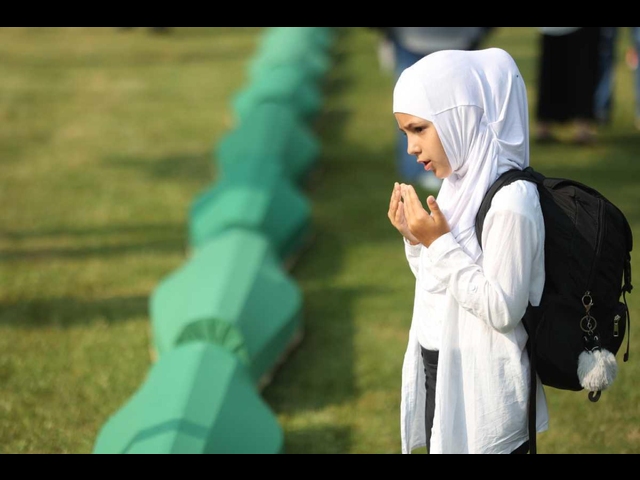
(by Franco Quintano) (ANSA) - BELGRADE, 10 LUG - Time has not erased the horror of the Srebrenica genocide. Thirty years later, the Bosnian town is once again engulfed by the pain and outrage triggered by the indiscriminate massacres carried out by Bosnian Serb forces under Ratko Mladić — atrocities that marked the darkest period of the bloody fratricidal conflicts that tore apart the former Yugoslav Federation in the 1990s. Tomorrow, July 11— designated by the United Nations as the International Day of Remembrance for the Srebrenica Genocide — official ceremonies are scheduled at the Potocari Memorial Cemetery, just outside the devastated town. Alongside relatives of the victims, many local political and religious leaders, as well as European and EU officials, are expected to attend. Of the more than 8,000 Bosniak civilians exterminated over a few days in July 1995, the remains of 6,765 have so far been identified and laid to rest beneath the vast, unsettling field of white headstones at Potocari. The remains of another 250 victims have been buried in local cemeteries, as requested by their families, while roughly a thousand remain missing. As always, tomorrow's commemorations will include the burial of newly identified victims—this year, seven individuals have been identified over the past 12 months. Several thousand people — mostly young men and women from across Bosnia-Herzegovina and other countries, including Italy —are expected in Srebrenica after completing the traditional Peace March. Participants retrace, in reverse, the 100-plus-kilometer route taken by approximately 15,000 Bosniak civilians who, in July 1995, fled through the forest toward Tuzla (then under Bosnian government control) after Bosnian Serb forces captured Srebrenica, despite its designation as a UN-declared "safe area." Only a small fraction of those fleeing ultimately survived. Thirty years after the tragedy, denial of the genocide persists. Serge Brammertz, chief prosecutor at the Hague Tribunal, has reported a rise in both genocide denial and public glorification of war criminals. Serbs and Bosnian Serbs remain steadfast in rejecting the label of genocide, arguing that the international community applies double standards and remains silent about the thousands of Serbian civilians killed by Bosniak forces in Bratunac and nearby towns in the same region along the Bosnia-Serbia border. To date, roughly 50 convictions totaling more than 700 years in prison have been handed down against former soldiers, police officers, and security officials for their roles in the Srebrenica genocide and the siege of Sarajevo. The two principal architects— General Ratko Mladić (83) and political leader Radovan Karadžić (80) — were both sentenced to life imprisonment. In fragile health, Mladić is incarcerated at the Hague Tribunal's facility in Scheveningen, while Karadžić is serving his sentence on the Isle of Wight in southern Britain. (ANSA).
